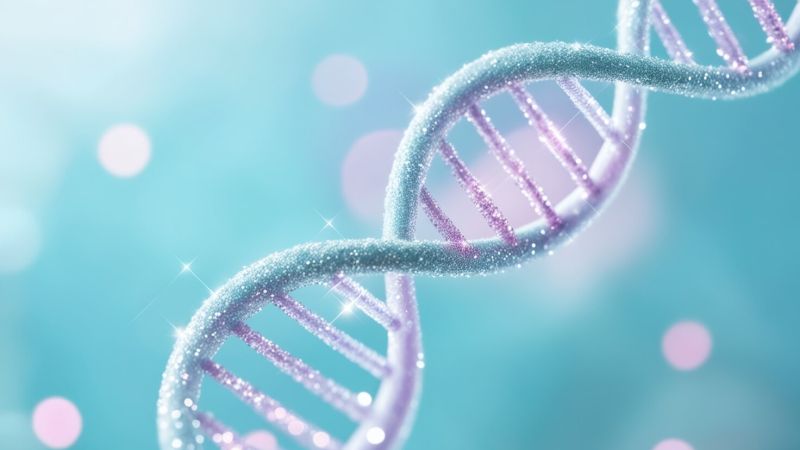
What David Sinclair’s Research on NAD Really Says
In the field of anti-aging research, one name that stands out is David Sinclair. His groundbreaking work on NAD precursors has been the subject of much interest and speculation. This article will delve into the details of Sinclair’s research, the science behind a NAD precursor, his key findings, and the criticisms and controversies surrounding his work. It will also explore the potential future applications of NAD in anti-aging and Sinclair’s predictions for the field.
“So what we’re all hoping to do, us researchers, is to develop ways to not really just extend lifespan but to keep people healthier for longer.” Dr. David Sinclair1
Who is David Sinclair?
David Sinclair is a renowned biologist and professor at Harvard Medical School. With a Ph.D. in molecular genetics from the University of New South Wales, Australia, Sinclair has dedicated his career to studying aging processes and exploring potential interventions to slow down or reverse its effects.
David Sinclair’s passion for unraveling the mysteries of aging began at a young age. Growing up in a small town, he was fascinated by the elderly individuals in his community and wondered why some seemed to age gracefully while others struggled with age-related ailments. This curiosity led him to pursue a career in biology, specifically focusing on understanding the underlying mechanisms of aging.
After completing his Ph.D., Sinclair embarked on a journey that would revolutionize the field of aging research. His groundbreaking discovery of the sirtuin enzymes, a group of proteins that regulate cellular metabolism and maintain genomic stability, opened up new avenues for understanding the aging process. This breakthrough not only earned Sinclair international recognition but also sparked a wave of excitement in the scientific community.
Sinclair’s Background and Achievements
Sinclair’s journey in the field of aging research began with his discovery of the sirtuin enzymes, which play a crucial role in regulating cellular metabolism and maintaining genomic stability. This groundbreaking work earned him numerous accolades, including being named one of Time magazine’s “100 Most Influential People in the World2” and one of the “Top 100 Global Thinkers” by Foreign Policy.
Throughout his career, Sinclair has published numerous scientific papers, shedding light on the intricate mechanisms that drive the aging process. His work has not only expanded an understanding of aging but has also paved the way for potential interventions to slow down or reverse its effects. Sinclair’s research has inspired a new generation of scientists to explore the fascinating world of aging biology.
Sinclair’s Contribution to Anti-Aging Research
Building upon his earlier discoveries, Sinclair turned his attention to a NAD precursor and its potential role in combating aging. His research focuses on how NAD precursor can increase levels of NAD+, a molecule crucial for cellular energy production and DNA repair. By boosting NAD+ levels, Sinclair believes it is possible to rejuvenate cells and combat age-related decline.
Sinclair’s groundbreaking work has attracted significant attention from both the scientific community and the general public. His research has sparked hope for a future where aging is no longer seen as an inevitable process but rather as a condition that can be managed and potentially reversed. With his relentless dedication and innovative thinking, Sinclair continues to push the boundaries of anti-aging research, inspiring scientists and individuals alike to embrace the possibility of a longer, healthier lifespan.
The Science
A NAD precursor is a molecule that can be used to make NAD+, a coenzyme involved in various cellular processes. It is synthesized naturally in the body and has garnered attention for its potential anti-aging properties.
What is NAD precursor?
A NAD precursor is a nucleotide composed of a ribose molecule, a phosphate group, and a nicotinamide moiety. It acts as a precursor to NAD+ and plays a crucial role in cellular energy production.
When we consume foods rich in NAD precursors, such as broccoli, cabbage, and avocados, our bodies break down these molecules into their constituent parts. The ribose molecule, phosphate group, and nicotinamide moiety are then used to synthesize NAD precursors within cells.
Once a NAD precursor is synthesized, it is transported to various tissues and organs throughout the body. This molecule is highly versatile and can be readily taken up by cells, where it undergoes a series of enzymatic reactions to ultimately produce NAD+.
The Role of NAD in the Body
Once ingested, NAD precursors are taken up by cells and converted into NAD+. NAD+ is involved in various cellular processes, including DNA repair, energy production, and gene expression. It acts as a coenzyme for numerous enzymes, facilitating their function and ensuring optimal cellular activity.
One of the key roles of NAD+ is in the production of ATP, the primary energy currency of cells. ATP is essential for powering various biochemical reactions, maintaining cellular homeostasis, and supporting overall bodily functions.
In addition to its role in energy production, NAD+ is also crucial for DNA repair. DNA damage occurs naturally as a result of exposure to environmental factors, such as UV radiation and toxins. NAD+ helps activate enzymes involved in DNA repair, ensuring the integrity of our genetic material.
Furthermore, NAD+ plays a vital role in gene expression. It acts as a signaling molecule, influencing the activity of certain genes and regulating cellular processes. By modulating gene expression, NAD+ helps maintain cellular health and function.
NAD and Aging: The Connection
Research suggests that the decline in NAD+ levels with age contributes to cellular dysfunction and the progression of age-related diseases. As you age, your body becomes less efficient at producing NAD+, leading to decreased cellular health and function.
NAD+ levels can be restored by supplementing with NAD precursors, leading to improved cellular function and potentially slowing down the aging process. Studies have shown that supplementation with NAD precursors can increase NAD+ levels in various tissues and organs, including the brain, heart, and skeletal muscles.
Increased NAD+ levels have been associated with numerous health benefits, such as improved mitochondrial function, enhanced metabolism, and increased longevity. By replenishing NAD+ levels, NAD supplementation may help support overall health and well-being as you age.
It is important to note that while the potential benefits of NAD precursors are promising, further research is still needed to discover new benefits and understand its mechanisms of action.
Sinclair’s Research on NAD
Sinclair’s research on NAD precursor aims to understand its effects on aging and its potential as an anti-aging intervention. As a renowned scientist in the field of aging research, Dr. Sinclair has dedicated his career to unraveling the mysteries of aging and finding ways to improve health and longevity. His focus on a NAD precursor, a molecule involved in cellular energy production, has garnered significant attention in the scientific community.
Dr. Sinclair’s primary goal is to investigate whether supplementation with a NAD precursor can reverse the aging process and improve overall health and longevity. His studies involve both animal models3 and human clinical trials, allowing for a comprehensive understanding of NAD’s effects on different biological systems.
The Aim of Sinclair’s Research
Sinclair’s primary goal is to investigate whether NAD supplementation can reverse the aging process and improve overall health and longevity. His studies involve both animal models and human clinical trials.
Dr. Sinclair aims to shed light on the underlying mechanisms of aging and identify potential interventions that can slow down or even reverse age-related decline. He believes that understanding the role of NAD in cellular metabolism and energy production could hold the key to unlocking the secrets of aging.
Key Findings from Sinclair’s Studies
Sinclair’s research has yielded promising results. In animal studies, NAD supplementation has been shown to improve mitochondrial function, increase NAD+ levels, and enhance cellular metabolism. These findings suggest that NAD has the potential to rejuvenate cells and improve overall health.
Furthermore, in human trials, early results suggest that NAD supplementation is safe and well-tolerated, with potential benefits for age-related conditions. Participants who received NAD precursor reported improvements in energy levels, cognitive function, and overall well-being. These preliminary findings have sparked interest among researchers and paved the way for further investigation.
The Impact of Sinclair’s Research on Anti-Aging Science
Sinclair’s research has sparked widespread interest and debate in the field of anti-aging science. His findings have opened up new avenues for exploration and have the potential to revolutionize the way we approach aging and age-related diseases. With the aging population becoming a global challenge, finding effective interventions to promote healthy aging is paramount. Dr. Sinclair’s research has provided valuable insights into the potential benefits of this molecule in combating age-related decline.
Scientists and pharmaceutical companies are investing in further research and development of NAD-based interventions. If successful, these interventions could potentially slow down the aging process and improve the quality of life for millions of people worldwide.
However, challenges and questions remain. The long-term effects of NAD supplementation, optimal dosage, and potential side effects are areas that require further investigation. Dr. Sinclair and his team are actively working to address these concerns and provide a solid scientific foundation for using NAD as an anti-aging intervention.
Overall, Sinclair’s research has not only advanced our understanding of aging but has also ignited hope for a future where aging is not synonymous with decline. The potential of NAD as an anti-aging intervention holds great promise, and further research will undoubtedly shed more light on its efficacy and safety.
Criticisms and Controversies
As with any groundbreaking research, Sinclair’s work on NAD has not been without its share of criticisms and controversies.
Criticisms of Sinclair’s NAD Research
Some skeptics argue that the benefits of NAD supplementation have been overstated and that more research is needed to understand its long-term effects fully. Others question the affordability and accessibility of NAD-based interventions. These criticisms are largely invalid.
Controversies Surrounding Anti-Aging
There are ongoing debates and controversies in the scientific community regarding the efficacy of NAD as an anti-aging intervention. Some researchers believe that other interventions, such as caloric restriction or exercise, may provide similar benefits without the need for NAD supplementation. Such criticisms are unfounded and we do know that NAD optimization is the first and necessary step towards healthy longevity.
The Future of NAD and Anti-Aging Research
Looking ahead, NAD holds tremendous promise in the realm of anti-aging research and practice.
Potential Applications of NAD in Anti-Aging
NAD supplementation can be used as a preventive or therapeutic intervention for age-related diseases. It also has applications beyond aging, such as neurodegenerative disorders and metabolic diseases.
Future Directions in NAD Research
Future research will focus on elucidating the mechanisms of NAD action, optimizing dosing regimens, and conducting large-scale clinical trials to establish its efficacy on specific health conditions.
Sinclair’s Future Plans and Predictions for Anti-Aging Research
Sinclair intends to continue his research on NAD and explore additional anti-aging interventions. He predicts that in the future, anti-aging interventions will become an integral part of healthcare, allowing people to live healthier and more fulfilling lives as they age.
Conclusion
In conclusion, David Sinclair’s research on NAD and anti-aging has brought significant attention to the field and has the potential to reshape how people understand aging. Further research is needed to fully explore the wide-range applications of NAD supplementation. As researchers continue to delve into the science of aging, society inches closer to unlocking the secrets of healthy longevity and paving the way for a healthier future. Supplement with Vitality ↑® NAD Boost and increase your NAD levels to extend your lifespan and improve performance.
Referenced Sources:
Read More














